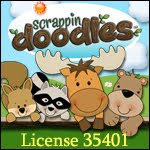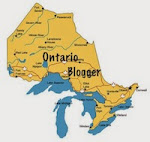How awesome is it that this chapter of Guided Math happened to fall right after the start of the Guided Math Conferences Book Study?!
If you are loving Guided Math (and how could you not?) then you should click here to check out my post on Guided Math Conferences, another fabulous book by Laney Sammons.
You totally have time to jump on board!
So I do have my original thoughts on this chapter and once again you can find them below in pink and italics.
Chapter 7 is all about conferring with students about their math understanding. The teacher is able to learn about the students, their work, what they may be struggling with, and the next steps in learning.
I loved when Sammon's wrote that "conferring is the heart and soul of teaching" (page 207).
What an amazing statement, and so true.
When we conference with our students, in any subject we sit alongside them, talk to them, listen to them and learn about them.
How wonderful.
Sammons also points out that conferring makes our instruction "more focused and powerful" (page 207).
Talking with my students about math is one of my absolute favourite parts of math workshop.
I often talk with my students as I move through the classroom and they are working, which I guess is a math conference!
During a math huddle I encourage a lot of math talk which I find is a great way to learn more about their math thinking, however
many students are only familiar with being questioned about their thinking when they are wrong, not when they are right.
I think it's important to ask students questions during both situations, when they are wrong to help clarify their thinking and guide them towards understanding the concept being studied and when they are right to help them expand their knowledge and their ability to communicate their thinking.
In order to help students gain a comfort level with this it needs to be a stated expectation from the beginning of the year.
I talk to my students about why I will be asking them questions
- no matter if they are right or wrong-
because it helps me to understand more about their thinking, it will help them to communicate clearly to their peers, and it will help their classmates to hear math talk from someone who understands the concept we are studying.
As the year progresses and students are questioned frequently they begin to expect it and look forward to answering in order to communicate their thinking.
Management Issues
- think and plan about how your students will be involved in independent work so you have time to confer with students (think- Math Workshop meets the Daily 5)
- you will not be able to consistently monitor the work of other students in the room during Math Workshop as you will be busy conducting conferences
- plan for what will happen
when students need help and they can't ask you
*This is a goal for me...I really want to have a solid routine in place so students can help themselves and each other.*
- it is essential that students become independent and self-sufficient in order to avoid "learned helplessness" and build endurance for problem solving
*This is such an important piece...in all subjects!!*
- plan for students who
1) have trouble starting a task,
2) staying on task,
3) always move around the room,
4) finish quickly with no thought to the quality of their work
- take a moment to watch the room before you start your conferences, move across the room instead of student to student beside each other
- follow up on conferences frequently
The Structure of a Conference
- teachers ask questions in order to see what the students are thinking, understanding and wondering
- main structure of a conference includes:
1) research
2) decide
3) teach
4) link
I love how Sammons writes that "the goal of a conference is to move a student from what he or she can almost independently to what he or she can do independently" (page 213).
The research stage is crucial here so that we go into a conference prepared with the knowledge we need to help our students.
It is important to remember that we can review our previous anecdotal observations as part of the research process as well as asking a student a general question that allows them to start explaining their thinking.
* I am currently revamping my
system for keeping anecdotal records.
If anyone has a good system, I'd love to hear about it. *
Once we have done the necessary research it is time to decide what is needed to help our students. How can we support our students' growth? Sammons outlines that we, as teachers, have three responsibilities during this phase:
1) talk about what students are doing well
2) choose what we can teach to move students forward
3) focus on how to best use the time left in our conference
I really noticed how often it was mentioned that teachers should focus on talking about what students are doing right from the start in order to help them feel comfortable during the conference and to help give them the confidence needed to learn from the teach segment of the conference.
Teaching anything during a conference will be brief and teachers need to know their STUFF!
Sammons writes that teachers usually use one of the folioing teaching strategies during this stage of a conference: guided practice, demonstration, explain and show an example.
Lastly, end the conference with a link to the future. Remind students about what they are doing well, what they have learned during the conference and to try to use their new knowledge next time they are solving a similar problem.
As mentioned before, Sammons talks about keeping records for the conferences at the
end of the chapter and the importance of this practice.
So my question is....how do you keep records during your math conferences/workshop/lessons etc?
Check out some more great posts about this chapter.
a Rafflecopter giveaway
















































